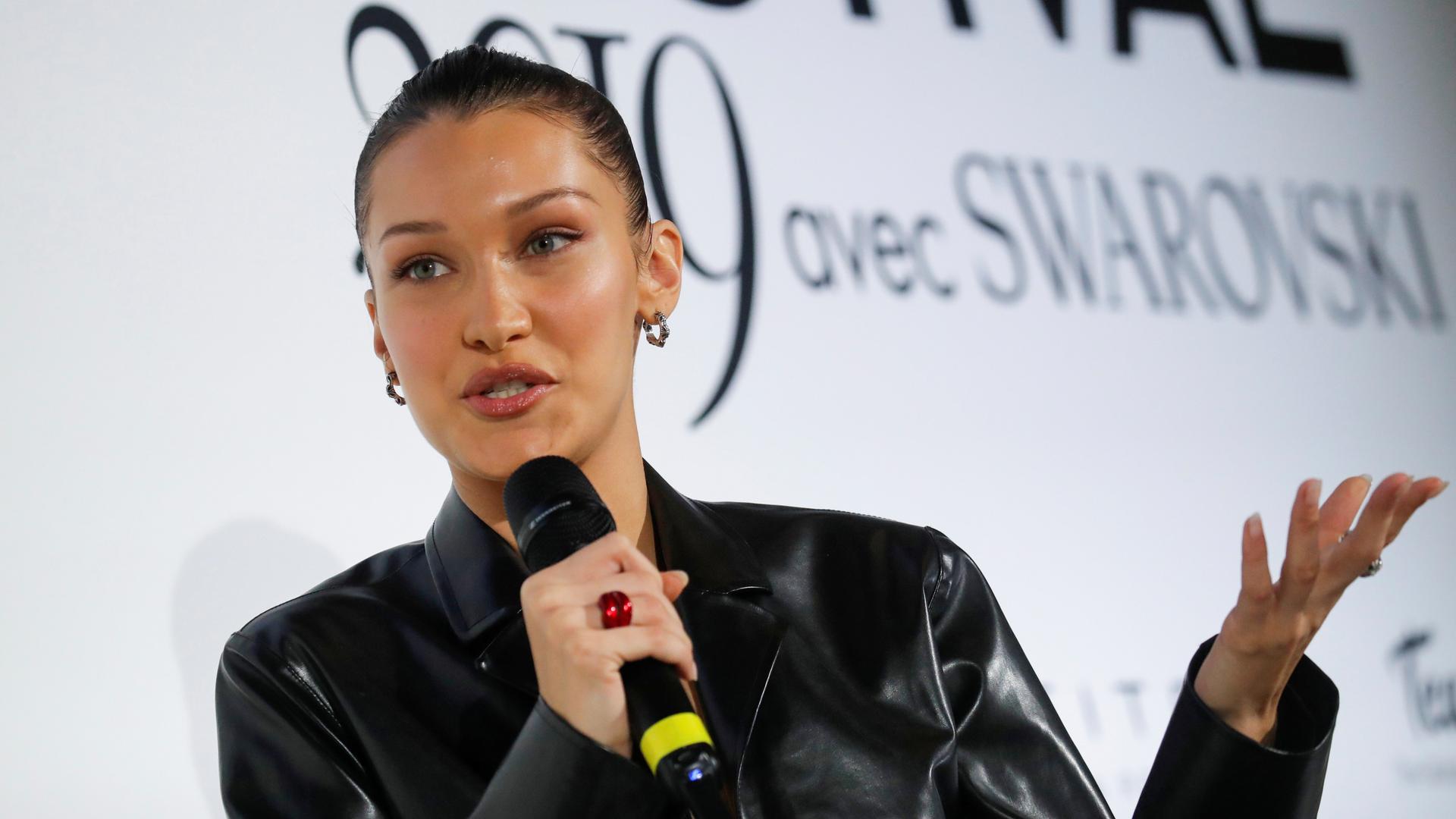The removal of model Bella Hadid’s post about her father’s Palestinian identity sheds light on a concerted effort to erase Palestinian voices online.
Tension between Palestinians and Israel have been on the rise and consistently rising since the ‘annexation’ date of July 1. Leading up to the expansion of Israeli occupation, numerous illegal activities took place inside the West Bank territories and in Israel against Palestinians.
But in addition to on the ground policing, the Israeli government has invested heavily into winning public opinion and policing Palestinian public discourse.
The most recent scandal involves Palestinian-Dutch supermodel Bella Hadid, daughter of Palestinian architect Mohammad Hadid, posting a blurred copy of her father’s US passport noting his birthplace, Palestine.
Instagram removed her post, citing it violated community standards. She replied to the platform through her story:
“What part of me being proud of my father’s birthplace of Palestine is ‘bullying, harassment, graphic, or sexual nudity’? Are we not allowed to be Palestinian on Instagram? This, to me, is bullying,” and that, “You can’t erase history by silencing people. It doesn’t work like that.”
She later encouraged her 31.5 million followers to share images of where their parents are from and to feel pride in their heritage.
Instagram apparently responded citing images of official documents must be blurred out. They said, “To protect the privacy of our community, we don’t allow people to post personal information, such as passport numbers, on Instagram. In this case the passport number was blurred out, so this content shouldn’t have been removed. We’ve restored the content and apologized to Bella for the mistake.”
This response is meek and quite clearly due to the social influence of the young model and her family.
Other, less influential Palestinian voices, have been silenced by the same channels with no public nor private apology. In May, 52 Palestinian journalists had their accounts completely deleted by Facebook – these journalists predominantly covered the occupation forces and their illegal activities. The accounts were permanently deleted for ‘violating community standards’ but Facebook provided no further detail and informed them there was nothing the could do to ever retrieve their accounts.
One said in a report: “I have three different Facebook pages: two official work accounts in Arabic and English, and one personal account. All of them were taken down.”
A reporter with the Al Haya Radio station in Nablus adds, after his account was also permanently deleted, “Anything I posted was at risk of being taken down. If I posted videos of settler attacks on farmers, or of clashes with Israeli soldiers, it would be taken down.”
He also noted that a simple post citing a Palestinian had been killed by Israeli forces would be removed. Journalists added the live feature was not functional and purposefully disrupted and that, “we are certain that the deactivation of all of our accounts was made at the request of the Israeli government.”
It would seem this silencing of Palestinian voices is only set to get worse. Facebook has installed what they are calling and ‘Oversight Board’ made of a multicultural group of 20 powerful and influential individuals to improve or oversee community standards as well as develop further guidelines on the type of content to remove.
A central member of this committee is Emi Palmor, former Director-General of the Israeli Ministry of Justice (excuse the oxymoron), she under Ayelet Shaked, really took to censoring Palestinians online.
During her time in government the Cyber Unit was founded and under her lead actively searched for, through support from Facebook, and silenced powerful Palestinian voices.
A report states that under her lead, since 2016, “there has been an increase in the number of Israeli government requests for data, which now total over 700, 50 percent of which were submitted under ’emergency requests’ and were not related to legal processes. These are not isolated attempts to restrict Palestinian digital rights and freedom of expression online.”
Another layer working in tandem in this attempt to erase the Palestinian identity, the Zionist party has no issues inducing an intentional conflagration of terminologies. This began by claiming themselves as the sole people with Semitic origins, despite certain modern-day Arabs being of the (obsolete) same ethnic group, as well as the Arabic language, which is the most widely spoken modern day Semitic language today.
More recently, by conflagrating anti-Zionism with anti-Semitism, a move that threatened to change freedom of speech in countries such as France. And now, it would appear, the next step on the agenda is to attempt to make Palestine a ‘bad’ word all together.
It is clear that a multitude of powers are attempting and largely succeeding and stifling Palestinian voices but this has been true for a long time. However, until today, you see resistance for a free Palestine from communities all over the world.
As many minority groups emerge and form solidarity movements, we also have ways to replicate our narratives of displacement. As the young model highlights, the Palestinian people, of all generations, cannot be and will not be erased – certainly not by a Silicon Valley social media app.
Author: Nadine Sayegh
Nadine Sayegh is a multidisciplinary writer and researcher covering the Arab world. She has covered topics including gender in the region, countering violent extremism, the Occupied Palestinian Territories, amongst other social and political issues.
Source










Discussion about this post